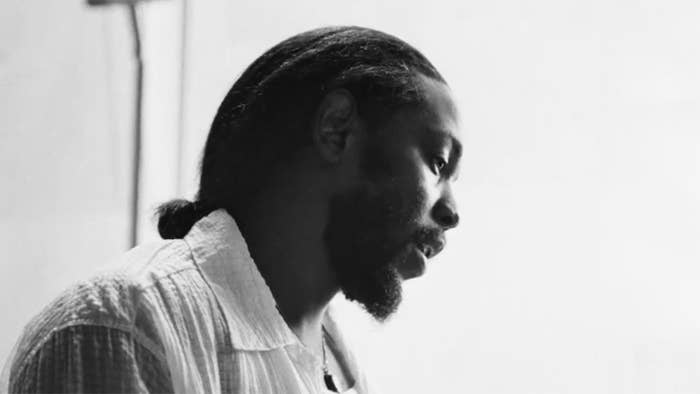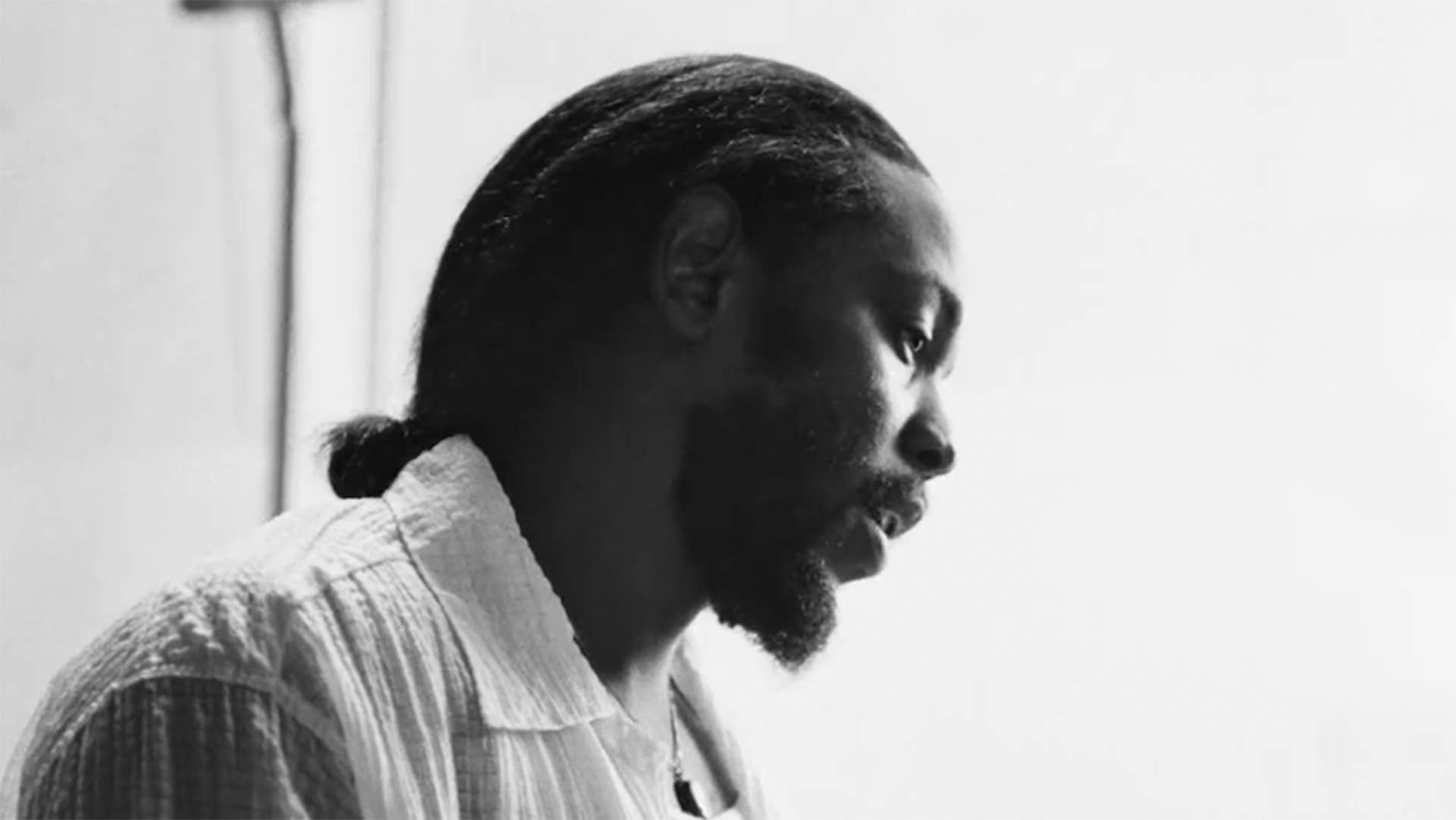
“Oh, this the part where mental stability meets talent.” – Kendrick Lamar
Since rappers first started rocking mics, they’ve rhymed about the challenges they face due to systemic oppression and socio-political inequalities, overcoming those obstacles through grit, tenacity, and mental fortitude. Rap is poetry, after all—naturally expressive and deeply emotional at its core.
However, artists have historically been more inclined to dissect the outside world than to analyze how these traumatic, life-altering events have impacted their own mental health. For some, to dive too deep into your own emotional wellbeing runs the risk of being considered “soft.”
Going to therapy, specifically, is a topic that many artists have shied away from in their music—until recently. One of the most visible examples of a superstar rapper addressing therapy on an album was Jay-Z on 4:44, where he faced his infidelity, familial trauma, and ego head-on. “My therapist said I relapsed,” Hov raps on “Smile,” a song about his mother discovering her sexuality. Now, nearly five years later, two of rap’s biggest stars have openly rapped about the benefits of going to therapy (Drake in his verse on Jack Harlow’s “Churchill Downs” and Kendrick throughout his new album Mr. Morale & The Big Steppers) during Mental Health Awareness Month. This represents a big step forward when it comes to breaking down the stigmas surrounding mental health.
The thematic structure of Kendrick’s Mr. Morale is centered around therapy sessions where he unpacks pivotal moments in his life that impacted who he is today. It takes bravery to rap about these revelations, especially issues like his unhealthy addiction to sex, “daddy issues,” and how his mother being abused affected his own outlook on the world. Mr. Morale isn’t overwhelmingly esoteric like some of Kendrick’s previous work, giving him a chance to lay his issues out in plain terms and reveal how therapy helped him get here.
A week prior, on Jack Harlow’s new song “Churchill Downs,” Drake opens his guest verse by rapping, “Cold hearts and heated floors/ No parental guidance, I just see divorce/ Therapy session, I’m in the waiting room reading Forbes/ Abandonment issues I’m getting treated for.” Since the beginning of his career, Drake has been more transparent and vulnerable than many of his rap peers (so much so that he was labeled “soft” early in his career), but this verse marks a significant moment where he directly addresses the help he’s received from therapy to resolve deeper familial issues.
Kendrick and Drake aren’t the only modern-day hip-hop artists that discuss deeply personal topics in their music, but why is it so rare to hear artists rap about issues like unpacking trauma through therapy? IDK might have the answer. As the Maryland rapper tells Complex, “Vulnerability is really a key to happiness—being able to be vulnerable and talk about things. The thing that gets in the way of that, though, is shame. If you can get past that idea of being ashamed, you’ll realize very quickly that more people relate to your problems than not.”
Like Kendrick and Drake, IDK is another artist who has used therapy to help reconcile deep childhood traumas, which he raps about in his music. Throughout his 2021 album USEE4YOURSELF, he tackled deeply personal subject matter, like his aunt molesting him as a child and grappling with his stepfather infecting his mother with AIDS, which would eventually kill her. IDK believes that the reason why it’s difficult for other male artists to discuss their own traumas is because of the stigmas surrounding mental health in the Black community, and how that stems from toxic masculinity and the constant need to be strong.
“I think, for men in particular, our masculinity is based on how strong we appear, physically and mentally,” he says. “The idea of a ‘strong man’ is that he’s able to get through certain pains and struggles, and things that he goes through mentally without complaining…the stigma around [therapy] is, if you express how you feel, you come off as weak.”
Some of the longest-held stigmas around therapy itself derive from the Black community having a lack of access to practical mental health treatments. Psychiatric treatments were not readily available for many Black people until the Civil Rights Act of 1964 when Samuel Cartwright’s discriminatory reports about African Americans having “child-like emotional processes” in the 19th century were finally challenged. Then, thanks to redlining and predatory housing policies around the same time, many Black people did not have access to psychiatric clinics and facilities that could properly treat them anywhere near their communities. In 2018, it was also reported that 11.5% of Black Americans had no form of health insurance.
View this video on YouTube
Therapy and mental health are rarely discussed in our community, because of deeply ingrained stigmas surrounding it. The National Center for Health Statistics cites that only 26.4% of Black men between the ages of 18 to 44 who have experienced daily feelings of anxiety or depression have used mental health services, whereas 45.4% of non-Hispanic White men experiencing the same feelings do. While it was found that Black clients respond more positively to Black therapists, as of 2019, Black mental health specialists only made up 3% of the field. Issues regarding mental health persist in the Black community, yet the concept of resilience supersedes the need for help. A study from the National Library of Medicine found that 63% of Black people believe that worsening mental health conditions are a sign of personal weakness. As IDK puts it, “I think the world is built for men to not really complain about our issues, and we’re always surrounded by that. I think the stigma around it is that, if you express how you feel, you come off weak.”
Hip-hop’s golden era runs parallel to the crack and opioid epidemics, and rehab has been a topic in the genre for ages. Unlike most forms of rehab, though, there doesn’t have to be any immediate health risks to go to therapy. Given rap’s current canon, it’s easier to rap about fighting off a lean addiction than openly talking about seeking therapy for childhood trauma. More people relate to the demons they’ve defeated than the ones they refuse to acknowledge. Ironically, music is often described as being therapeutic by artists and fans alike.
Mr. Morale and USEE4YOURSELF are both therapeutic in a more literal way. Both projects reflect some of the benefits of going to therapy—helping you uncover triggering life events and discover how those experiences have informed the person you are today. Once those stigmas are torn down and the self-doubt is removed, therapy reveals that everybody is going through something, even if you can’t see it yourself.
“Speaking to someone is what people call a good form of therapy,” IDK says, explaining how he uses his music in a similar way as a counseling session. “When I’m making music, I’m speaking to millions of people. So it almost starts off as something selfish. It’s something for me, and then it becomes something that so many people are affected by. That’s what makes me want to continue to do it.”
View this video on YouTube
It’s not easy to talk about the things that Kendrick, Drake, and IDK do on these records, which millions of people hear (and scrutinize). It takes a certain level of emotional depth to put something in a song that you’d have trouble talking about in a normal conversation. If more artists of their stature got deeply personal in their music and openly discussed the benefits of therapy, it could make a big difference in breaking down the stigmas surrounding mental health in general. “I think that the more [rappers] that [talk about therapy], the more likely others will,” IDK says.
A common misconception about therapy is that it gives you all the answers. It doesn’t. A therapist’s job isn’t to tell you about yourself. Their job is to give you the keys to help unlock doors that you may have never noticed, or were too afraid to open in the first place. And there’s nothing trendy or fun about it. Speaking from experience, it’s not easy to sit down with a complete stranger and discuss things that you have trouble talking about with yourself, but it’s worth it. Kendrick Lamar, Drake, IDK, and other brave rappers and artists have proven that. The road to reaching a balanced mental state is never-ending, but beginning the journey is far more beneficial than convincing yourself it doesn’t matter. “I think the most important thing I got [from therapy] is that everything is connected,” Hov explained to Dean Baquet in his 2017 New York Times interview. “Every emotion is connected and comes from somewhere, and being aware of that in [your] everyday life puts you at such an advantage.”
If you’re looking for a sign to try out therapy and learn more about how childhood experiences inform adult habits, unpack uncomfortable memories, or just talk to someone without the fear of being judged, this might be it.
As Kendrick Lamar said on “Mother I Sober,” “So I set free myself from all the guilt that I thought I made.”




![It’s not easy to talk about the things that Kendrick, Drake, and IDK do on these records, which millions of people hear (and scrutinize). It takes a certain level of emotional depth to put something in a song that you’d have trouble talking about in a normal conversation. If more artists of their stature got deeply personal in their music and openly discussed the benefits of therapy, it could make a big difference in breaking down the stigmas surrounding mental health in general. “I think that the more [rappers] that [talk about therapy], the more likely others will,” IDK says.
A common misconception about therapy is that it gives you all the answers. It doesn’t. A therapist’s job isn’t to tell you about yourself. Their job is to give you the keys to help unlock doors that you may have never noticed, or were too afraid to open in the first place. And there’s nothing trendy or fun about it. Speaking from experience, it’s not easy to sit down with a complete stranger and discuss things that you have trouble talking about with yourself, but it’s worth it. Kendrick Lamar, Drake, IDK, and other brave rappers and artists have proven that. The road to reaching a balanced mental state is never-ending, but beginning the journey is far more beneficial than convincing yourself it doesn’t matter. “I think the most important thing I got [from therapy] is that everything is connected,” Hov explained to Dean Baquet in his 2017 New York Times interview. “Every emotion is connected and comes from somewhere, and being aware of that in [your] everyday life puts you at such an advantage.”
If you’re looking for a sign to try out therapy and learn more about how childhood experiences inform adult habits, unpack uncomfortable memories, or just talk to someone without the fear of being judged, this might be it.
As Kendrick Lamar said on “Mother I Sober,” “So I set free myself from all the guilt that I thought I made.”](https://img.youtube.com/vi/ZhehmfbEfZw/mqdefault.jpg)